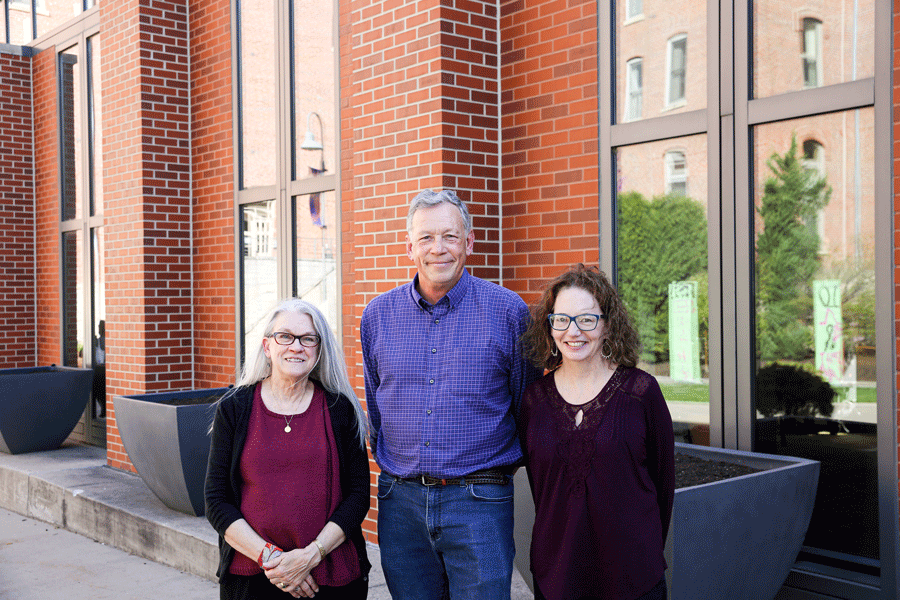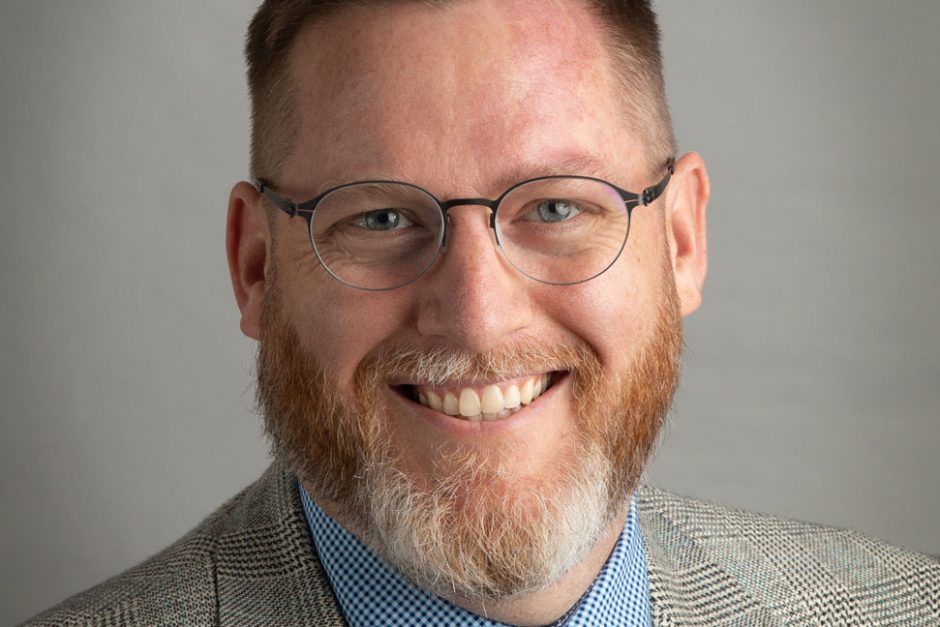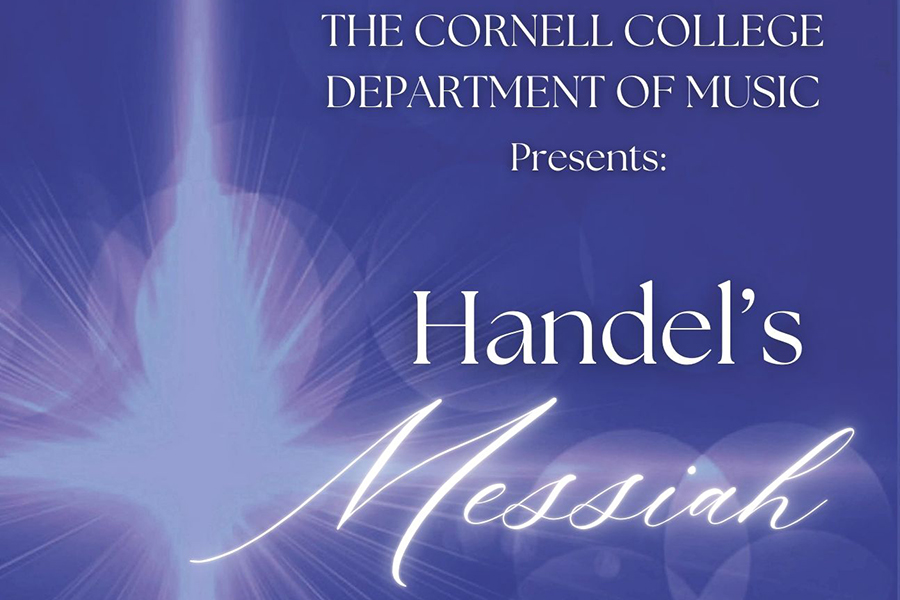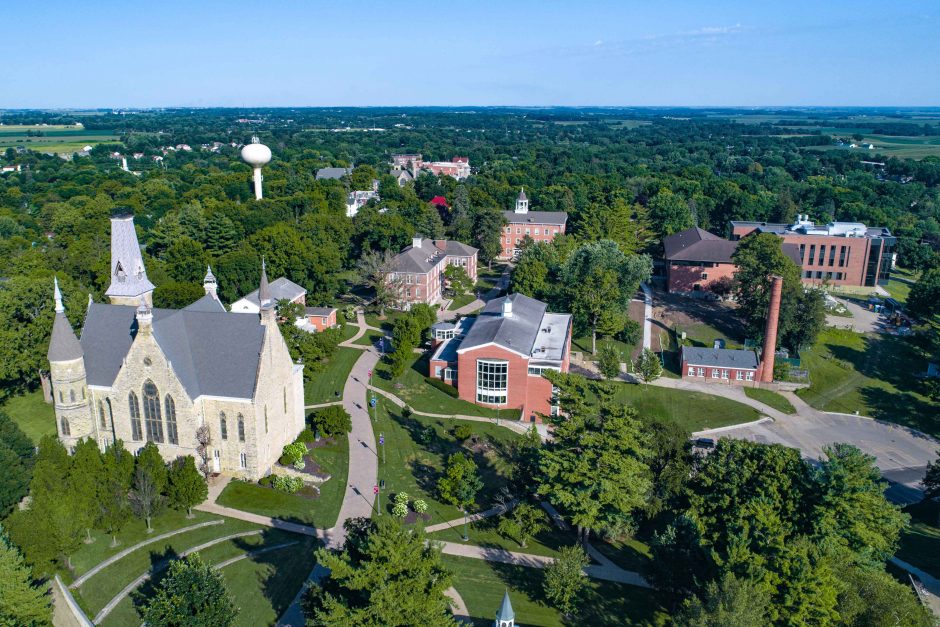Retiring faculty reflect on Cornell
Professors of Biology Barbara Christie-Pope and Craig Tepper are saying goodbye to the labs in the Russell Science Center, and Professor of English and Creative Writing Michelle Mouton taught her last block. All three faculty retired at the end of the academic year after teaching for a combined 85 years. Before leaving the Hilltop, they took the time to answer some of our questions.
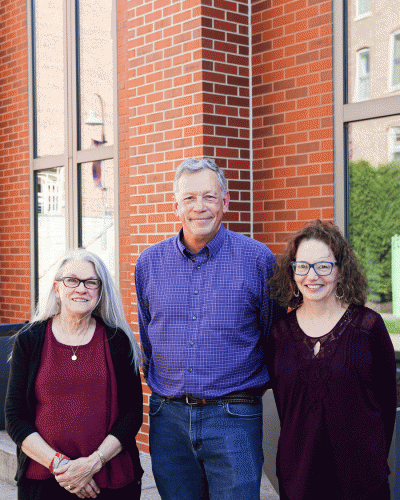
What were your first impressions of Cornell?
Mouton: The campus was stunningly beautiful when I arrived in a snowy January for my on-campus interview! However, it was the people who made the strongest impression. Faculty and students were brilliant, and welcoming. It was clear from the start that Cornell’s culture focused on academic excellence and honoring diversity, and that the faculty respected and cared deeply about their students.
Christie-Pope: I came for a campus interview in the spring just when all of the trees were blooming. The grounds were lovely. I was nervous but the biology faculty made me feel comfortable. I knew that I would enjoy working at Cornell.
What Cornell traditions or quirks will you miss?
Mouton: I’ll especially miss the daily, casual conversations—about news of the day, good books, student projects and performances, or even the weather—that happen on the Ped Mall, Zamora’s, or the lobby of South Hall. I’ve been incredibly fortunate to have such wonderful colleagues and students.
Christie-Pope: I don’t know if this is a tradition or a quirk, but I will miss just walking on the Ped Mall and greeting students.
Tepper: At the top of my list is an on-going off-campus capstone research course that Bob Black and I initiated in 1999 when we traveled to the Gerace Research Centre located in San Salvador, the Bahamas, with 20 Cornell students. This research course has attracted hundreds of Cornell students over the past 24 years. The course has expanded to include a field station located on South Water Caye, Belize. Barbara Christie-Pope has been the co-instructor for the course since 2012. Over the years, student research has focused on the rich coral reef marine life.
How did your teaching style change over the years?
Christie-Pope: I used to tell few stories, was very intent on stating only the facts and concepts. I now teach more with cases that emphasize the importance of those facts and concepts.
Tepper: There was no electronic technology in the classroom. We used overhead projectors to illustrate important images in subcellular biology. Some textbooks supplied overhead transparencies that were in color. I don’t recall the year, but I do recall the first class I converted to PowerPoint was my Developmental Biology course. PowerPoint changed the way we taught in the sciences, allowing us to show microscopic images of the cell.
The most dramatic shift was the transformation from talking about science to performing science. The department moved from “canned” labs to a more effective learning experience with open-ended lab research. The focal point of science instruction and learning shifted from the classroom to the lab.
Student life and learning changed dramatically when the department moved into the brand-new Russell Science Center with advanced classrooms and lab facilities, abundant research space, and new science equipment.
How have students changed over the years?
Mouton: Have they? Cornell students, when I began and now, strike me as curious, engaged, and caring.
Tepper: Each year, incoming students are more diverse. Each class includes a mix of people of varying gender affiliation, ethnicity, socio-economic status, and learning differences.
Christie-Pope: I am not sure students have changed much, at least not here at Cornell. The students are the reason I have stayed here for over 30 years. They are still engaging and challenge me. The students are what I will miss most with retiring.
Any advice for new faculty?
Christie-Pope: Get to know your colleagues outside your discipline.
Mouton: This was a great piece of advice I got from a retiring faculty member, and it’s even more important today: instead of making a call or sending an email, walk across campus whenever possible to talk in person.
Tepper: Try to take time to get to know your students and their stories. Laugh with students, especially at your own mistakes. This breaks the barrier between students and faculty and enhances learning when students realize you are not that different from them. Know when to slow down to give students a breather. Pay attention to student evaluations, but do not obsess over them. Being innovative in the classroom is essential to student success. Mix it up and try new things, but have fun with your students. Most importantly, your colleagues are your absolute best resources.
What are your plans for retirement?
Christie-Pope: Ride my bike more; read books not related to science; devote more time to my hobbies: knitting, weaving, glass fusing, and gardening.
Tepper: I plan to spend more time with grandchildren, traveling with my wife, bicycling, and fishing. I am also interested in learning more about photography through an adult education course, and volunteering. However, I might enjoy the freedom of retirement before I decide how and where to volunteer.

